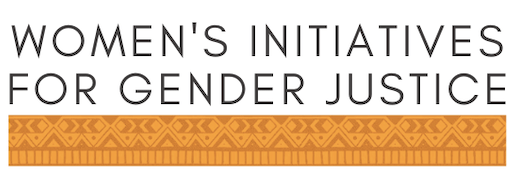
Women’s Initiatives’ Executive Director Addresses State Parties at the Opening of the ICC Review Conference
On Tuesday, 1 June 2010, Women’s Initiatives’ Executive Director Brigid Inder delivered an address to the Assembly of States Parties during the General Debate of the Review Conference of the Rome Statute. The Women’s Initiatives was one of nine NGOs invited to address the plenary.
In her speech, Brigid Inder began by explaining that based on the Women’s Initiatives’ long history with the Court and our extensive work with women activists living in the ICC conflict situations, our message to State delegates is that ‘Women want prosecutions, implementation, prevention and a voice in all of it.’ More tangibly, this means that ‘Women want domestic and international prosecutions for gender-based crimes, implementation of the Rome Statute by their own governments as well as the ICC, prevention of conflict and violence against women; a voice at the table for peace talks, and acceptance as key stakeholders, key partners, and full citizens in the implementation of peace agreements.’
While noting that for many women the ICC represents ‘their greatest hope’ and ‘for some their only chance for justice’, the Court still faces many challenges before it can fully deliver on this promise. For example, the prosecutorial strategy for charging gender-based crimes remains under-developed, leading to a higher rate of dismissal of gender-based crimes when compared to other categories of crimes. And in contradiction to the developments in jurisprudence for gender-based crimes by the ad hoc tribunals, judges in some ICC cases are applying modest concepts of gendered violence.
It was also noted that complementarity and state cooperation – two of the four issues to be debated during the Stocktaking Exercise at the Review Conference – pose significant issues for women that deserve special attention in the discussions and outcomes of the Review Conference.
Regarding complementarity, Brigid Inder noted that in many of the countries where the ICC exercises jurisdiction, limited legal rights for women often results in the denial of justice for women victims of violence. ‘In such circumstances, the commission of gender-based crimes in the absence of a legal system able, willing and likely to prosecute these crimes, is a justifiable criteria on its own, for the ICC to open an investigation under the principle of complementarity.’
Finally, the Assembly of States Parties was reminded that while the ICC must provide the benchmarks for the prosecution of gender-based crimes, ‘the weight of this responsibility lies first and foremost with states.’ In order to truly end impunity, national governments must comply with the Rome Statute as well as its related documents – the Elements of Crimes and Rules of Procedure and Evidence – that ‘together embody the legal standards and intentions of equality before the law.’
Read Brigid Inder’s full address to the Assembly of States Parties.
